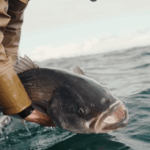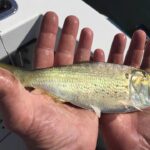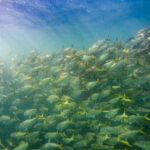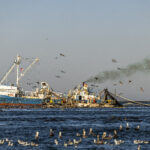
Release Mortality Revisited: New Research from Massachusetts DMF
Feature Photo Credit: Robbie Tartaglia What’s going on? For decades, striped bass management relied on a
Title Photo: Rex Messing of SIMMS Fishing aboard with Capt. Jaime Boyle
Meeting Preview: Mid-Atlantic Fishery Management Council August 2023
This time of year is traditionally the busiest stretch for fisheries management. Regional Fisheries Management Councils are reviewing stock assessments and committee recommendations for new catch levels. Meanwhile, the Atlantic States Marine Fisheries Commission meets for its Summer Meeting. As many of you know, the ASMFC meeting involved a critically important decision for striped bass, which was ultimately delayed. We’ll address that in a separate blog soon. In an effort to keep our member anglers, guides, and business owners up to date on the resources they rely on, here are a few brief notes that will be discussed at this week’s Mid-Atlantic Fishery Management Council August Meeting:
Bluefish
Summer Flounder
Atlantic Mackerel
Other Notes

Feature Photo Credit: Robbie Tartaglia What’s going on? For decades, striped bass management relied on a

Recent developments in the 2025 Atlantic Menhaden Stock Assessment Update, released by the Atlantic States

What’s going on? The “most important fish in the sea” just exposed one of the

Mario CampoFisheries Ecologist, Southeastern Louisiana UniversityScience and Policy Associate, American Saltwater Guides Association This discussion
We rely on our members and donations to keep fighting for a sustainable tomorrow in marine conservation.
GIVE THE GIFT OF FISHERIES CONSERVATION THIS HOLIDAY SEASON. SHOP ASGA GOODS THAT FUND FISHERIES RESEARCH & ADVOCACY CAMPAIGNS
JOIN ASGA IN CALLING FOR CRITICAL MANAGEMENT ACTION AFTER YEARS OF SPAWN FAILURES & POOR MANAGEMENT.
By using this website, you agree to our use of cookies. We use cookies to provide you with a great experience and to help our website run effectively. To learn more, please review our privacy policy.